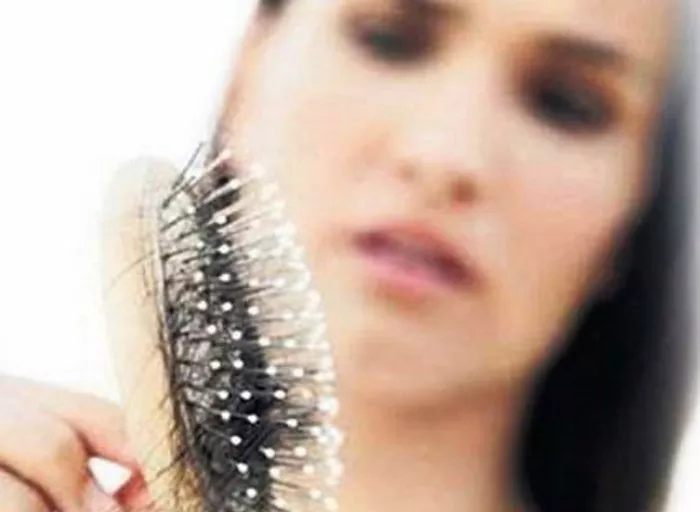Embarking on a journey to understand hair growth and the potential for hair loss is essential for those who are experiencing unexpected changes in their locks. While hair loss can be attributed to various factors, comprehending the intricacies of the hair growth cycle is the first step toward finding effective solutions.
The Hair Growth Cycle
The human hair growth cycle consists of three main phases: anagen, catagen, and telogen. The anagen phase is the active growth phase, where hair cells divide rapidly, leading to the visible growth of hair. This phase typically lasts for several years, and the length of hair is determined during this period. The catagen phase is a transitional phase, signaling the end of active growth. Finally, the telogen phase is a resting phase where hair is shed and new hair begins to grow.
Understanding this cycle is crucial because any disruption in its natural progression can lead to hair loss. Several factors can influence the hair growth cycle, resulting in unexpected shedding or slowed growth.
Will the Newly Grown Hair Fall Out?
The fate of newly grown hair depends on various factors, including its stage in the hair growth cycle, underlying causes of hair loss, and individual health. Hair naturally goes through cycles of growth, rest, and shedding. If the underlying cause is addressed, such as hormonal imbalances, nutritional deficiencies, or stress, the newly grown hair is more likely to stay. However, if the issue persists or worsens, the hair may continue to be affected. Consulting with a healthcare professional is essential to determine the specific cause and develop a tailored approach to promote the longevity of newly grown hair.
Common Factors Affecting Hair Growth
The following are common factors that affect hair growth:
1. Genetics
Genetics play a significant role in determining hair growth patterns and susceptibility to hair loss. If your family has a history of hair loss, you may be genetically predisposed to experience it yourself. This is particularly true for conditions such as male pattern baldness and female pattern baldness.
2. Hormonal Changes
Hormonal changes can profoundly impact hair growth. Fluctuations in hormones, such as those that occur during pregnancy, childbirth, menopause, or conditions like polycystic ovary syndrome (PCOS), can lead to hair loss. Additionally, hormonal imbalances in both men and women can contribute to thinning hair.
3. Nutritional Deficiencies
A well-balanced diet is crucial for maintaining healthy hair growth. Deficiencies in essential nutrients such as iron, zinc, vitamin D, and B-vitamins can lead to hair loss. Ensuring a nutritionally rich diet and, if necessary, taking supplements under medical guidance can help address this issue.
4. Stress and Lifestyle Factors
High levels of stress, both physical and emotional, can contribute to hair loss. Stress disrupts the natural hair growth cycle and can lead to increased shedding. Adopting stress-management techniques and maintaining a healthy lifestyle can positively impact hair health.
5. Medical Conditions and Medications
Certain medical conditions, such as autoimmune diseases, thyroid disorders, and alopecia areata, can result in hair loss. Additionally, some medications, including those used in cancer treatment, may cause hair thinning as a side effect. Consulting with a healthcare professional is essential to address underlying health issues.
Addressing Hair Loss Concerns
Here are the solutions to hair loss problems:
1. Consultation with a Professional
If you are experiencing significant hair loss or are concerned about changes in your hair growth, seeking the advice of a dermatologist or a healthcare professional is crucial. They can conduct a thorough examination, evaluate your medical history, and recommend appropriate tests to identify the root cause of the issue.
2. Adopting a Healthy Hair Care Routine
A proper hair care routine can contribute to overall hair health. This includes using mild shampoos, avoiding excessive heat styling, and minimizing the use of harsh chemicals. Regular trims can prevent split ends and promote healthier hair growth.
3. Nutritional Support
Ensuring that your body receives adequate nutrition is vital for healthy hair growth. A diet rich in protein, vitamins, and minerals can support the hair growth cycle. If necessary, supplements can be incorporated, but it is essential to consult with a healthcare professional before doing so.
4. Stress Management
Incorporating stress-management techniques, such as meditation, yoga, or regular exercise, can positively impact both your mental well-being and your hair health. Stress reduction is key to maintaining the balance of hormones that influence hair growth.
See Also: The Best Sunsilk Shampoo for Hair Loss: A Comprehensive Guide
Conclusion
Understanding the complexities of the hair growth cycle and recognizing the various factors that can contribute to hair loss is essential for anyone experiencing changes in their hair. Whether influenced by genetics, hormones, nutrition, lifestyle, or underlying health conditions, addressing hair loss concerns requires a comprehensive approach.
By consulting with professionals, adopting a healthy hair care routine, ensuring proper nutrition, and managing stress effectively, individuals can take proactive steps toward maintaining vibrant and resilient hair. Remember, identifying the root cause is the first step in finding suitable solutions, and a holistic approach to hair care can lead to positive outcomes in the journey toward healthy and beautiful hair.


